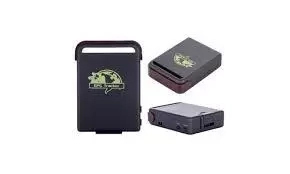
20 Car Maintainance Tips Every Car Owner Should Know
Here are the 20 car maintainance tips every car owner should know. These checklist will help car owners perform routine maintaince process before visiting the mechanic.
Cars these days are no longer just luxury possessions – owning a car has become more of a necessity. The average person prefers driving a personal car to conveying themselves with public transport.
👉 Relocate to Canada Today!
Live, Study and Work in Canada. No Payment is Required! Hurry Now click here to Apply >> Immigrate to CanadaHowever, owning a car can be very stressful if your vehicle develops faults every now and then. Just as prevention is better than cure, maintenance is better than repair. Although repairs are one of those things that you cannot run away from.
The aim of maintenance is to keep everything in good working condition for your own safety on the road, and to prevent abrupt lump-sum expenses on sudden repairs.
Also, there are some basic things that go wrong with your car that you should be able to detect by yourself and profer immediate solution. This article gives tips on things that you should watch out for and ensure you do regularly.
Read Also: The 10 Cheapest New Cars in Nigeria and Prices
1) Read You Car’s Owner’s Manual.
The owner’s manual of your car gives maintenance tips that are specifically for your car make. It tells you how to properly care for your vehicle, and what to watch out for. Studying your owner’s manual/guide can help you save a lot of money.
2) Tyre Pressure
Different cars have their recommended tyre pressure. You can refer to your owner’s manual for the recommended tyre pressure for your car. It is not safe to just pump your tyres to any level. Over pumping your tyres put more strain on the fibres of your tyres than they can handle. This could lead to your tyres bursting on the road. Bad tyres affect fuel economy and make handling difficult. You can also see the recommended levels on your types by the side.
3) Check-ups With Your Mechanic
👉 Relocate to Canada Today!
Live, Study and Work in Canada. No Payment is Required! Hurry Now click here to Apply >> Immigrate to CanadaIt is adviseable that you visit the mechanic at regular intervals, even when you are yet to spot any faults. Use a reliable and trustworthy mechanic, who won’t constantly manufacture faults for your vehicle just so he can get some money off you.
4) OIL LEVEL
Check your oil level, as it tells you whether the car needs more oil. Never let your car run out of oil. To check this, look for the dip stick, pull it out, and after wiping it clean, push it back in. After a few seconds, pull it out and check where the oil is. As long as the oil is in the middle of the Low (L) and high (H) marks, you are okay. If it is below the L, then you should top up your oil.
Also, a lit oil light behind your steering wheel means you are almost out of oil, got an oil filter blocked or a strainer in the sump, or even that the oil pump has died. An oil change is usually required at certain mileage intervals. However, there could be a leak that causes your oil to drain faster. Oil is very important in your car because it serves as lubrication since a car’s engine is primarily metal running against metal. Make it a habit to check your engine oil every 4 to eight weeks, and ensure that there are no leaks.
Read Also: E-Commerce Is Changing the Way Cars Are Being Bought and Sold in Nigeria
5) AVOID EXHAUSTING YOUR FUEL
Running out of fuel means that your fuel pump would pull sludgy petrol from the bottom of the tank through the system, staining and spoiling your oil filter. Hence you would have to change it earlier than normal. Avoid running out of fuel. Fill up immediately the fuel light comes up.
6) Cooling System
Your car has a coolant warning indicator that tells you when your car is running hotter than it should. The radiator is the regulator of heat in the car. It directs coolant around the engine as an when necessary. Hence, you have to make sure that coolant is available for it to spread. Tap water can be used but only as a last resort. Remember not to open the radiator cap immediately your park, after the car has been running, or else the hot liquid will splash out at you.
7) CHECK YOUR BELTS
At the front of your engine, there will be a series of rubber drive belts that loop around various pulleys, driving everything from the alternator to the a/c compressor. You should check your belts as early as 25,000 miles and replace them at about 50,00 miles. Check your owner’s manual for specific information concerning your vehicle’s belts.
8) BODYWORK/PAINT
Only choose superior products when buying supplies for your car’s bodywork. Wax and polish compounds are far more sophisticated both in terms of protection from fading and look of the finish. Better products make your car always look new.
9) DISCONNECT YOUR BATTERY
Whenever you are doing any work on your car involving the electrical system, disconnect the battery first. This is basic and essential. Not doing this can even destroy the brain box. Loosen the connector for the negative terminal first and wiggle the terminal cap off. If you need to take the battery out, then you can take off the positive connector. Remember, NEGATIVE BEFORE POSITIVE, to avoid shocks. To reconnect, first put the positive before the negative.
Read Also: How to Start Car Wash Business in Nigeria
10) CHECK ENGINE LIGHT
Your car’s ‘check engine’ light might not always mean that you should stop driving, or that your car is about to get destroyed, however, in many cases, it does indicate a major problem.
Also, the ”Service Engine” light means means that you are getting close to a scheduled maintenance interval. It can come up on different bases, depending on the car make. It could be counting miles or temperature level, oil level, etc.
10) ELECTRICAL FAULT LIGHT
This appears differently in different cars, but it usually takes the shape of a battery. This usually comes on and off when your start your car, but if it stays on, it means that your car’s electrical charging system is no longer functioning properly. At this point, it will only take a short period of time before the problems begin to show up or before your battery runs out.
11) BRAKE WARNING LIGHT
Just like the engine warning lights, the brake warning light indicates a problem with the braking system. Although it does not have a standard meaning, your owner’s manual will throw more light into this. It could also mean that your hand brake is activated. If this is so, you should be perceiving a burning smell already. Also, there is an ABS warning light for ABS equipped cars. If this light comes on, it means that the ABS computer system has detected something amiss in the system. It could just be as simple as dirt in one of the sensors or as costly as an entire ABS unit.
12) Tyre Rotation
Tyre rotation helps your tyres wear evenly. This means changing your tyre position. If your car is unidirectional, you can change your front right tyre with the rear right tyre and left with left. Don’t switch right to left to prevent your vehicle from running in the wrong direction.
13) BLOWN OR FLAT TYRE
A flat tyre (not completely deflated) will allow you drive to the nearest Vulcanizing shop to have it repaired. If it is blown out of completely deflated, pull over and replace with your spare. Driving around with deflated or flat tyres will damage your tyres, and you cannot compare the cost of changing a tyre to the cost of early repair.
See: Heavy Duty Tyre Inflator Price and Specifications
14) WINDSHIELD FLUID
Always make sure your windshield fluid is topped to ensure that your windshield is properly cleaned so that you can have clearer vision.
15) UNFAMILIAR SOUNDS
Any unfamiliar sound that comes up when your start your car or while you are driving should not be ignored. If you do not have any idea as to what the cause might be, you should visit your mechanic.
16) KEEP YOUR CAR CLEAN
Keeping your car clean will prevent dirt from accumulating and keeps corrosion away too. Clean the exterior and interior areas of your car.
17) DRIVE CAREFULLY
Driving carefully not only protects you from accidents, it also reduces wear and tear.
18) CHANGE YOUR AIR FILTER REGULARLY
Changing your air filter helps to improve your fuel efficiency. You can change your air filter after 6 months (or from 6 months to 12 months) or after every 12,000 to 15,000 miles.
19) CHANGING FUEL FILTERS
Changing your fuel filters on time before they get really bad will do a lot of good. Bad fuel filters will allow bad fuel or residue to enter the engine, which is not the best for its proper functioning.
20) ROUTINE CHECKS
Routine checks here does not have to involve a mechanic. You can always do routine checks by yourself. Start by checking specific areas, and then also check for nothing in particular. Just inspect your car to make sure everything is in place.
Read Also: How to Register a Car in Nigeria
– You should only buy cars that you can maintain, in terms of finances and time required.
.
– Only buy cars that are compatible with your environment. Not all cars are meant for every location.
.
-Ensure you buy cars that you can easily get the parts to buy.
.
– Make sure you have your fire extinguisher in place.
.
– Keep your papers, license and other particulars updated and properly in place. Also have a copy at home.
.
– Don’t leave your car parked for too long. Take your car for a ride every once in a while. At least keep the engine running.
Hope this was helpful.
Stay safe.





